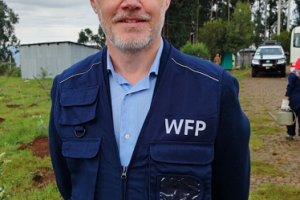
As part of the reform, various countries and international financial institutions have given loans to Ethiopia worth billions of USD. But will the conditionality of the loans be used to influence or impose policies?
Following the overall reform, the Ethiopian government has softened its stubborn position in terms of economic policies and decided to give an uplifted role to the private sector. This, in fact, has attracted the attention of several multilateral financial institutions.
Particularly, following the government’s announcement of its intention to privatize state-owned enterprises, the attention the country is receiving is on the rise.
Eventually, international finical institutions like the International Monitory Fund (IMF) and the World Bank began to lend their hands in the form of loans and grants for the country.
Prime Minister Abiy also applauded the move particularly of IMF considering the length of the reimbursement time and the lesser amount of interest.
Wossenseged Assefa, Economist and Advisor tells The Ethiopian Herald that multilateral financial institutions promote privatization, liberalization, and deregulation.
In the past they influenced the adoption of the Structural Adjustment Program (SAP) in African countries, compromising their national interests.
On the other hand, the most profitable enterprises in Ethiopia such as Ethiopian Airlines and the telecom sector are owned by the state. And this might be an issue of concern.
“Of course, as the government received a country with an empty treasury and that lost billions of dollars through state robbery, such dealings are important to reverse the nosedive situation,” Wossenseged says.
But maximum care needs to be given in making decisions with long-term consequences.
As to him, the government should also focus on lucrative businesses which are helpful in securing foreign currency. For instance, it can take policy measures to boost export, ban the import of luxurious goods, promote import substitution and invite the diaspora to invest in the country.
Hilu Belay, an investor and business consultant on his part says the recent loan deals would not compromise the national interests of the country. It is rather a smart move to compensate for the loss from previous bilateral loans.
As to him, the thinking that the conditionality of Western financial institutions’ loans is a threat to the country’s national interests is a hasty generalization that the time doesn’t demand.
The long reimbursement time table is by itself is an advantage, he says. It is also better than loans gained through bilateral relations and from countries that twist hands to impose their interests.
Structural adjustment programs (SAPs) consist of loans provided by the International Monetary Fund (IMF) and the World Bank (WB) to countries that experienced economic crises.
The two Institutions require borrowing countries to implement certain policies in order to obtain new loans (or to lower interest rates on existing ones). The conditionality clauses attached to the loans have been criticized because of their effects on the social sector.
SAPs are supposed to allow the economies of the developing countries to become more market-oriented. This then forces them to concentrate more on trade and production so it can boost their economy. Through conditions, SAPs generally implement “free market” programs and policy.
Critics argue that the financial threats to poor countries amount to blackmail, and that poor nations have no choice but to comply.
Since the late 1990s, some proponents of structural adjustments (also called structural reform), such as the World Bank, have spoken of “poverty reduction” as a goal.
To increase the borrowing country’s involvement, developing countries are now encouraged to draw up the Poverty Reduction Strategy Papers (PRSPs), which essentially take the place of SAPs. Some believe that the increase of the local government’s participation in creating the policy will lead to greater ownership of the loan programs and thus better fiscal policy.
The Ethiopian Herald February 13/2020
BY LAKACHEW ATINAFU





